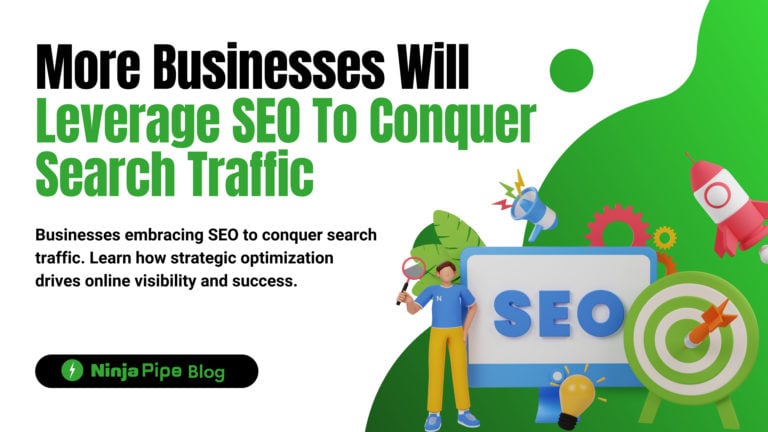AI’s takeover is underway. Explore how Artificial Intelligence is reshaping industries and revolutionizing the way we live and work.
Artificial Intelligence (AI) has come a long way since its inception, evolving into a powerful force that is reshaping various aspects of our lives. Whether we realize it or not, AI is gradually taking over, revolutionizing industries, improving everyday experiences, and transforming the future. In this article, we will explore the rise of AI, its impact across different sectors, ethical considerations, and its exciting potential for the future.
Introduction
What is Artificial Intelligence (AI)?
AI refers to the simulation of human intelligence in machines that are programmed to perform tasks that typically require human intelligence, such as visual perception, speech recognition, decision-making, and problem-solving. AI systems analyze vast amounts of data, learn from patterns, and make informed decisions or predictions.
Brief history of AI
AI has its roots in the 1950s when computer scientists began exploring the concept of building machines that could exhibit intelligent behavior. Over the years, AI has made significant advancements due to improved computational power, big data availability, and breakthroughs in algorithms and machine learning.
1. The Rise of AI
AI’s influence is expanding rapidly across diverse industries. Let’s delve into how AI is transforming various sectors and enabling groundbreaking innovations.
AI applications in various industries
AI finds applications in numerous fields, including healthcare, finance, retail, manufacturing, transportation, and more. From streamlining processes to enhancing decision-making capabilities, AI is unlocking new possibilities and driving efficiency.
Advancements in AI technology
Technological advancements, such as neural networks, machine learning algorithms, and natural language processing, have enhanced AI capabilities. Deep learning, a subset of machine learning, empowers AI systems to analyze complex data and learn patterns, leading to improved performance and accurate predictions.
2. AI in Everyday Life
AI has seamlessly integrated into our daily routines, enhancing convenience and personalization. Let’s explore some examples of how AI is shaping our everyday experiences.
Smart home devices
Smart home devices, powered by AI, enable us to control and automate various functions within our homes. From voice-controlled virtual assistants to smart thermostats and security systems, AI simplifies tasks and improves comfort.
Virtual assistants
Virtual assistants like Amazon Alexa, Google Assistant, and Apple’s Siri leverage AI to understand and respond to voice commands. These intelligent assistants assist with tasks like setting reminders, answering queries, and even controlling smart home devices.
Personalized recommendations
AI algorithms present personalized recommendations based on individuals’ preferences, past behavior, and historical data. We experience this in entertainment platforms, e-commerce websites, and social media platforms, providing tailored content and suggestions.
3. AI in Business
AI adoption offers significant advantages to businesses, revolutionizing operations and delivering exceptional customer experiences.
Automation and efficiency
AI-powered automation streamlines mundane and repetitive tasks, allowing human employees to focus on strategic and creative endeavors. This leads to improved productivity, reduced costs, and more efficient business processes.
Customer service and chatbots
AI-powered chatbots provide instant customer support, offering quick responses and addressing common queries. They are available round-the-clock, improving customer satisfaction and saving organizations valuable time and resources.
Predictive analytics
AI-driven predictive analytics utilizes historical data and machine learning algorithms to forecast future trends and outcomes. This empowers businesses to make data-driven decisions, optimize operations, and identify potential risks or opportunities.
4. The Impact of AI on the Workforce
AI’s increasing capabilities have raised concerns about job displacement. However, the relationship between AI and the workforce is more complex than simply replacing human labor.
Job displacement vs. job creation
While AI may automate certain tasks, it also creates new job opportunities. As technology evolves, new roles emerge that require human skills, such as data analysis, AI system management, and creative problem-solving. Adaptation and upskilling are essential to thrive in the changing job market.
Upskilling and reskilling opportunities
With the rise of AI, there is a growing demand for individuals skilled in AI-related fields. Upskilling and reskilling initiatives can equip workers with the necessary expertise to leverage AI systems effectively, enabling them to remain relevant in the workforce.
5. Ethical Considerations of AI
As AI becomes more prominent, ethical implications deserve careful attention to ensure responsible and fair use of this technology.
Data privacy and security
AI relies heavily on data, raising concerns about privacy and security. Safeguarding personal information, establishing robust data protection measures, and ensuring transparency in data usage are crucial aspects to address.
Bias in AI algorithms
AI systems can be biased based on the data they are trained on, leading to skewed results and discriminatory outcomes. Ensuring diverse and unbiased data sets, along with regular algorithmic audits, can mitigate these biases and promote fairness.
6. AI in Healthcare
AI has immense potential to revolutionize healthcare, improving diagnoses, treatment, and patient outcomes.
Disease diagnosis and treatment
AI algorithms can analyze medical data like patient records, lab reports, and medical images to assist in disease diagnosis and treatment planning. This can lead to earlier detection, more accurate diagnoses, and personalized treatment recommendations.
Drug discovery and development
AI-driven algorithms can accelerate the drug discovery process by analyzing vast volumes of data, predicting drug interactions, and identifying potential candidates. This helps researchers optimize their efforts and develop innovative treatments more efficiently.
7. AI in Education
Education is another sector profoundly impacted by AI, offering personalized learning experiences and streamlining administrative tasks.
Personalized learning experiences
With AI, educators can provide personalized learning paths tailored to individual students’ strengths, weaknesses, and learning styles. Intelligent tutoring systems can adapt and provide real-time feedback, enhancing student engagement and knowledge retention.
Intelligent tutoring systems
AI-powered tutoring systems can assist students outside the classroom, offering personalized coaching, explanations, and practice exercises. These systems adapt to individual progress and provide targeted support, supplementing traditional teaching methods.
Administrative tasks automation
AI simplifies administrative tasks for educators, automating processes like grading, attendance tracking, and resource management. This enables teachers to dedicate more time to instruction and student support.
8. AI in Transportation
AI is reshaping the transportation industry, paving the way for safer and more efficient travel.
Self-driving cars
AI-enabled self-driving cars hold the potential to revolutionize transportation. By leveraging AI algorithms and sensors, these vehicles can navigate roads, avoid collisions, and optimize travel routes, reducing accidents and congestion.
Traffic management
AI systems can analyze real-time traffic data and make intelligent decisions to optimize traffic flow, minimize delays, and enhance overall transportation efficiency. This helps alleviate congestion and provides smoother travel experiences.
9. AI in Entertainment and Gaming
AI’s influence extends to the world of entertainment and gaming, creating immersive experiences and enhancing user interactions.
Virtual reality (VR) and augmented reality (AR)
AI-powered VR and AR technologies enable users to immerse themselves in virtual worlds or engage with augmented environments. These technologies enhance gaming experiences, training simulations, and interactive entertainment.
AI-powered gaming experiences
AI algorithms can adapt games dynamically based on players’ behavior, skill levels, and preferences. This results in challenging and immersive gaming experiences, with AI-controlled characters providing intelligent and realistic responses.
10. The Future of AI
As AI continues to evolve, it holds tremendous potential for further advancement in various areas. Let’s explore what the future might hold for AI.
Emerging AI trends and technologies
AI is constantly evolving with new discoveries, algorithms, and applications. Trends like explainable AI, edge computing, and federated learning are shaping the future landscape of AI, unlocking novel possibilities.
Potential benefits and challenges
While the potential benefits of AI are vast, challenges such as ethical concerns, transparency, and accountability need to be addressed. Striking a balance between innovation and responsibility will be crucial to harness AI’s full potential.
Conclusion
Artificial Intelligence is undeniably taking over the world, revolutionizing industries, transforming everyday experiences, and reshaping our future. From smart homes to business automation, healthcare advancements to personalized education, AI’s impact is far-reaching. As AI technology continues to progress, it is essential to navigate the ethical considerations and leverage this powerful tool responsibly. The future holds tremendous possibilities, and embracing AI’s potential while addressing challenges will contribute to a better tomorrow.
FAQs
- What are the main applications of AI? AI finds applications in various sectors, including healthcare, finance, retail, manufacturing, transportation, and more. It is used for automation, data analysis, customer support, personalized recommendations, and improving decision-making.
- Will AI replace human jobs? While AI may automate certain tasks, it also creates new job opportunities. Adaptation, upskilling, and reskilling can help individuals thrive in the changing job market.
- Are there any ethical concerns related to AI? Ethical considerations in AI include data privacy, security, and bias in algorithms. Fair use, transparency, diverse data sets, and algorithmic audits are crucial to address ethical concerns.
- How is AI transforming healthcare? AI is revolutionizing healthcare by aiding disease diagnosis, treatment planning, and drug discovery. It enables personalized care, early detection, improved predictions, and more efficient research.
- What is the future of AI? The future of AI holds promising trends such as explainable AI, edge computing, and federated learning. While there are challenges, striking a balance between innovation and responsibility will be key to its progress.








Leave a Comment